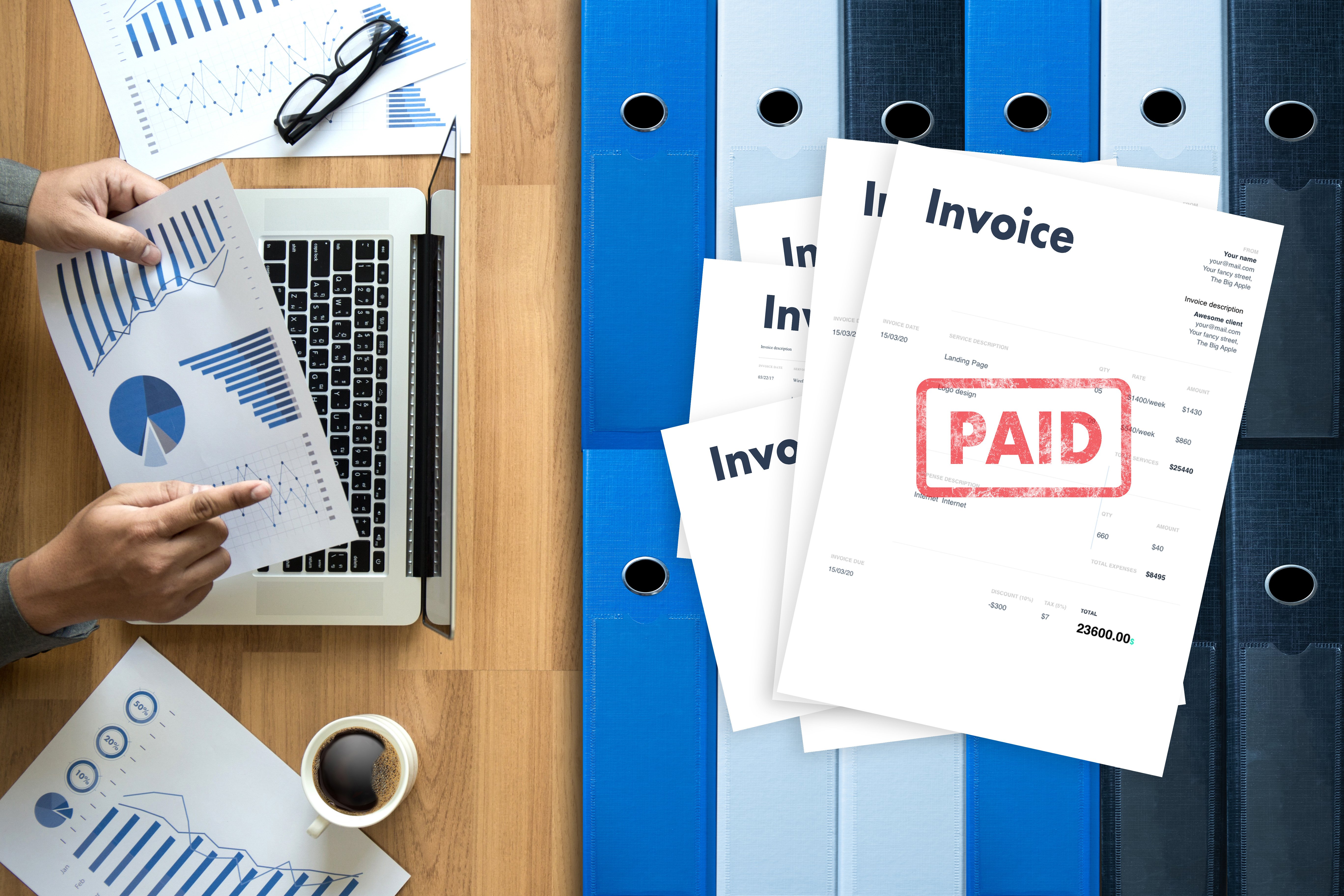Collecting on receivables
Taking collections actions when an invoice or account is overdue is probably not something any business owner looks forward to. However, regardless of whether you're in healthcare, manufacturing, distribution, or any other industry, you're likely to encounter clients who fall behind on payments.
While it's tempting to focus on why businesses seem to be struggling more with late payments these days, the reality is that these challenges are common and won't simply disappear. You're certainly not alone if you're finding it difficult to manage your receivables, nor are you alone if you'd rather focus your time and energy elsewhere!
Effective receivable management, however, is critical to a healthy business. By reducing operating costs, improving cash flow, and streamlining your revenue cycle, you can ensure your business runs smoothly and has the resources needed to grow. Additionally, outsourcing collections or using automation tools can save valuable time, allowing you to focus more on business development while maintaining financial health. In the end, managing receivables effectively is not just about collecting payments—it's about creating a foundation for sustained growth and success.
Moving beyond phone calls as a collection strategy
Sending ‘Past Due’ notices and calling businesses who were late in making payments used to be the only things a company could do to collect overdue payments. If these actions weren’t successful, the choices were either to record it as a bad debt and write it off or send it to a debt collector and hope that you’d eventually get a few pennies on the dollar.
What many businesses do now is work with a receivables management system or accounts receivable management services.
What is a receivables management system?
A receivables management system (rmc) is a third-party debt collection company that works with for businesses to help them collect on outstanding accounts. Interestingly, they do tend to still use past due notices and direct phone calls (to business or personal phone numbers) as their first steps in collecting debts. Actions escalate from there.
As part of their collection services, most rms (receivable management services) companies have an online payment portal. In the first letter they send out to debtors, they include a reference number with a login and password. Using this information, a company can go online and make a payment.
In any business, having an easy way for your customers to pay you is an important strategy in managing your accounts receivable. It’s possible that the actual process of making payments is deterring some clients from keeping their accounts current. So, if you are asking customers to pay invoices in ways that are time-consuming (like sending cheques or making a bank transfer), addressing this is a top priority.
One company that provides a user-friendly process to managing your accounts is Resolve. They offer complete net terms and credit management services. This includes discrete credit checking services so you can quickly identify clients who may have trouble paying larger invoices. This empowers your business to set reasonable credit limits and net terms—something that significantly lowers your risk of having bad debts.
Resolve also offers each client a branded payment platform. With this in place, every customer you offer net terms to has access to their account online under your business. They can see what they owe, see how much credit they still have access to, and make payments by credit card, ach, wire transfer, or even by mailing in a check. Resolve handles the payment processing, and you get paid quickly and easily—often within one business day. They also chase payments and manage collections.
Pros and cons of working with a receivables management corporation
The biggest advantage to working with a receivables management corporation is getting paid for products or services you’ve already provided to your customers. Right alongside this is having another company working on your behalf to collect on accounts receivables.
When you’re a smaller corporation, chasing past due accounts can cost a lot in labor and effort, whether you’re doing it personally or you have your accounting department doing it. And every day you don’t receive payment is another day when you’re facing your own payment challenges.
Salaries, accounts payable, overhead, and marketing don’t wait on payment until you get paid. So, having a company help you get caught up by collecting late payments will help. However, there are some disadvantages that are important to consider. First, receivables management agencies are also businesses and operate as debt collection agencies. They charge for their services, and you’re the one who pays them. Depending on your profit margins, this can really hurt your bottom line.
And one reason that these types of collections agencies are effective is that they take a strong—and sometimes aggressive—approach to pursuing bad debts. Whomever they go after are companies that you’ve done business with. Many are companies you may do business with again in the future. Having to deal with a receivables management corporation may create problems with your business relationships—and some end up needing help from a credit repair company as a result. No one wants their contact information shared with a creditor.
Depending on the industry you’re in, it may also affect your relationships with other customers or potential customers. One way to help mitigate this is to read the reviews for a receivables management agency before deciding to work with them. If their activities have negatively impacted the businesses who hire them, you’ll likely read this in the reviews.
Companies in all industries provide the same services in different ways. Look for a company that does right by their customers while still maintaining effectiveness in collection accounts receivables. Both the Consumer Financial Protection Bureau (CFPB) and the Better Business Bureau (BBB) may have information about customer complaints. Here, you’ll see both complaints from businesses who have hired the corporation as well as complaints from businesses who were on the receiving end of collections actions.
Only work with reputable receivables management corporations
The debt collection industry must adhere to very strict regulations. They need to follow the Fair Debt Collection Practices Act (FDCPA) which stops agencies from using abusive or deceptive tactics to collect any debt and they must also comply with HIPPA.
This means that receivables management corporations cannot report false or incomplete information to the credit bureau for a company’s credit report, they must provide validation that any debt they’re pursuing is legitimate, they cannot threaten or harass, and they must honestly represent themselves as a collection agency.
For many companies, attempting to collect on debts is a part of doing business. Not a desirable part, but important. Choosing how you pursue these debts is up to you.







